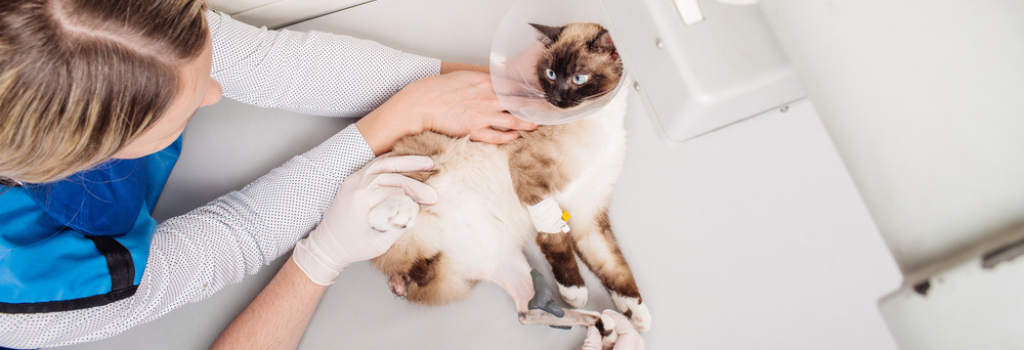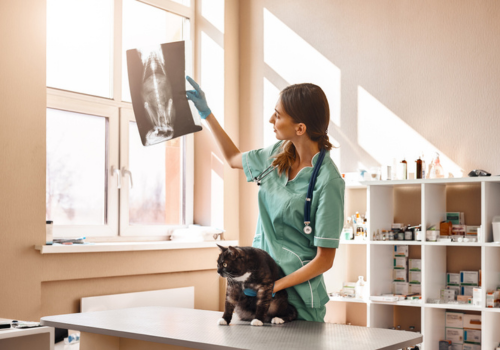Understanding Diagnostic Imaging for Cats
Just like people, cats sometimes need diagnostic tests to uncover the source of illness or injury. Because they can’t tell us what’s wrong, imaging plays a vital role in veterinary care—it allows us to see what’s happening inside your cat’s body without invasive procedures.
What is diagnostic imaging?
Diagnostic imaging refers to a range of tests that create images of your cat’s internal structures. These tools help us identify injuries, monitor ongoing health issues, and detect early signs of disease. Imaging is painless, non-invasive, and essential for making informed treatment decisions. Common imaging methods include:
- X-rays – Best for bones, teeth, and dense structures
- Ultrasound – Ideal for viewing soft tissues and fluid-filled organs
In most cases, x-rays or ultrasounds provide the information we need. More advanced imaging, like MRI or CT, is used when necessary and typically referred to specialty centers.

How does imaging help diagnose problems?
Each imaging tool gives us a different view inside your cat’s body:
- X-rays help detect fractures, tumors, or blockages
- Ultrasound allows us to assess organs like the heart, liver, or bladder in real time.
What conditions can be diagnosed with x-rays?
X-rays help us identify a variety of medical issues, including:
- Broken bones and joint issues
- Tooth damage and dental disease
- Intestinal or bowel blockages
- Bladder stones
- Tumors
- Pregnancy
They are often our first diagnostic step when a cat presents with pain, limping, or abnormal behavior.

How do we decide when imaging is needed?
We recommend imaging based on your cat’s symptoms, physical exam, and medical history. For example:
- Limping or trauma? We’ll likely suggest x-rays.
- Vomiting or abdominal pain? An ultrasound may be the next step. Because cats are so good at hiding pain, these tools are essential for getting answers quickly and accurately.
Why is early diagnosis so important?
The sooner we identify a health issue, the better the outcome. Whether it’s detecting a tumor early, finding a hidden injury, or diagnosing an infection before it spreads, prompt imaging can make all the difference in your cat’s recovery and long-term wellness.
Have questions? We’re here to help.
If you're concerned about your cat or want to learn more about diagnostic imaging, please give us a call at (337) 893-8522.
